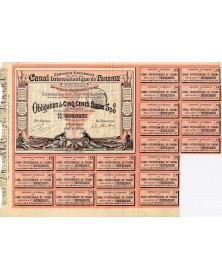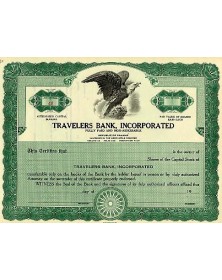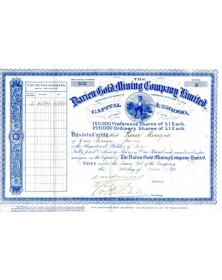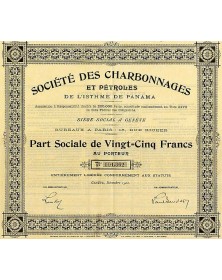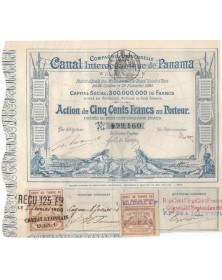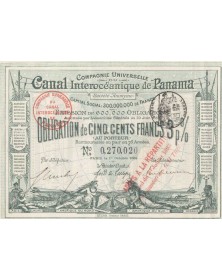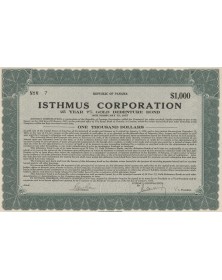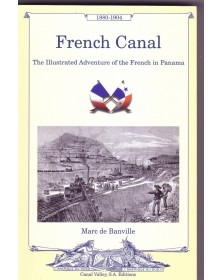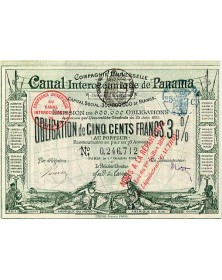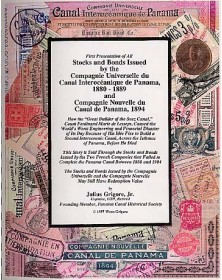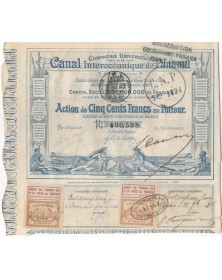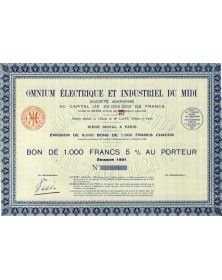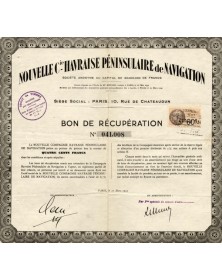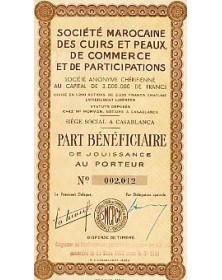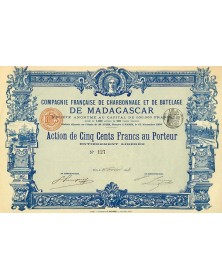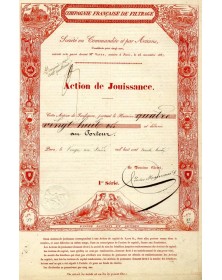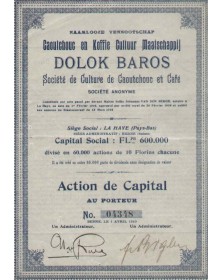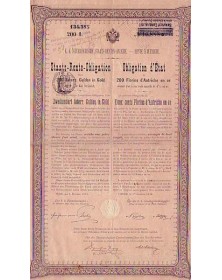Compagnie Universelle du Canal Interocéanique de Panama (1883)
Bond of 500F 5%. Paris 1883.
Without stamp.
Bond of 500 francs 5% at the bearer issued in Paris in 1883.
Without stamp.
Facsimile Signature of Ferdinand de Lesseps.
Buoyed by the success of the construction of the Suez Canal, Ferdinand de Lesseps, more than seventy years old, was persuaded to renew the operation in the Isthmus of Panama - then Colombian territory - without listening to the warnings of the engineers who highlight the technical difficulties.
Financially, he took up the methods that had worked so well for him at Suez twenty years earlier: the creation of a company, the issue of shares, the placement of bonds. The Universal Company of the Interoceanic Canal of Panama was incorporated on October 20, 1880, with a share capital of 1 billion 335 million francs.
Banks, Crédit Lyonnais in the lead, for comfortable commissions, stuff their customers with paper. But Panama is the barrel of the Danaïdes... To sustain the successive broadcasts (seven series from 1882 to 1888), public opinion had to be worked on. The company buys journalists. It also buys parliamentarians: 104 one will say! Reckless or naive, they accept checks. In consideration of which, the Chambers end up authorizing the company to issue batch loans. But it is already too late.
In 1889, it is the debacle. The company is put into liquidation. 800,000 "small carriers" are ruined. They brought a billion and a half francs of the time (equivalent to about thirty today).
Faced with the scale of the simmering scandal, the Loubet government began by trying to stifle it. A waste of time, the affair burst into the open in 1892 and transferred to the political arena. Compromised parliamentarians and ministers are pilloried. A commission of inquiry is appointed. One of the most compromised financiers, Reinach, dies opportunely. His accomplice, Cornélius Herz, friend of the Minister of Finance Rouvier, fled abroad. The ministry just has to resign.
We find the stubs of the checks and the names of their beneficiaries, including those of the ministers Rouvier, Baïhaut, Charles Floquet, who of course claim to have used the money to finance their electoral campaign.
The commission of inquiry only made its report in 1897. Justice gave its verdict in 1893. But time had already done its work of appeasement. Almost all the accused were acquitted, with the exception of Baïhaut (who had confessed!), Ferdinand de Lesseps, his son and Gustave Eiffel, sentenced respectively to five and two years in prison, a judgment which was quashed and not returned. . Lesseps died in 1894 without being aware of the trial.
Again the small savers went through losses and profits. But the foundations of the Republic are shaken. The Panama Affair, with its hints of anti-parliamentarianism and anti-Semitism, fueled the Dreyfus Affair which began, precisely, in 1894.
Nice design by Stern.
Small format (about 18x13 cm excluding coupons, 30x22 with 25 coupons).
Data sheet
- Country
- Panama
- Theme
- Canals
- Design
- Yes
- Rare bonds
- Issued before 1900
- Condition
- EF


